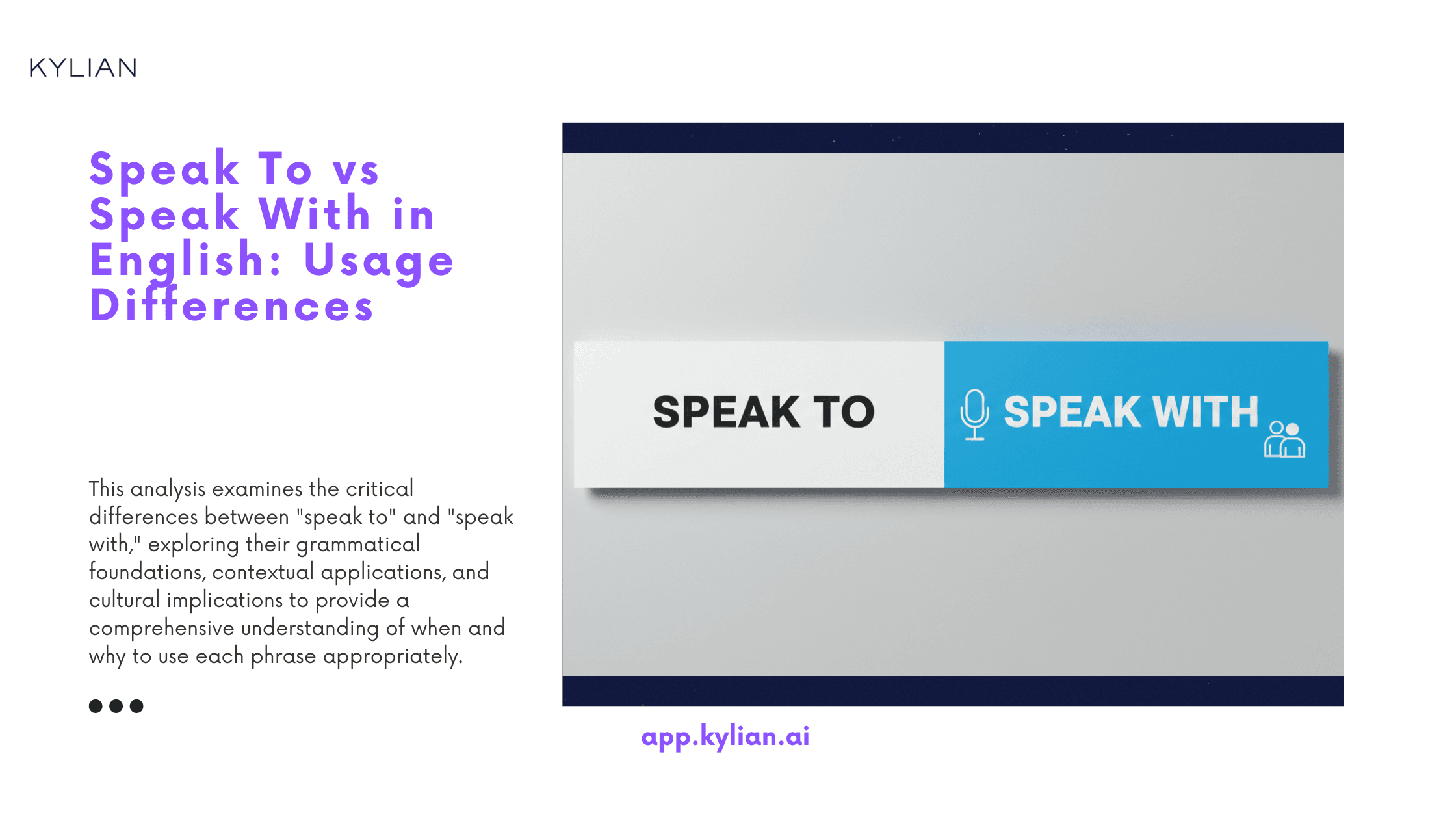

Mastering "In Which," "Of Which," "At Which" in English
Relative pronouns serve as critical connectors in English sentence construction, yet they often present significant challenges for language learners and even native speakers. The specific subset of relative pronouns involving prepositions—"in which," "of which," "at which," and "to which"—demands particular attention as they introduce nuanced relationships between clauses that, when mastered, dramatically enhance the sophistication and clarity of written and spoken communication. This precision matters because language facility directly impacts credibility in professional settings, academic environments, and international communication. When we examine global language proficiency metrics, we find that preposition-relative pronoun combinations consistently rank among the top five grammatical structures that differentiate advanced language users from intermediate ones. The ability to employ these constructions correctly reflects a deeper understanding of English syntax and demonstrates linguistic maturity that resonates with sophisticated audiences. Let's explore how these constructions function, when to use them, and how to avoid common mistakes that undermine otherwise excellent communication.


Proficient At, With, or In? Learn Preposition Use in English
Language precision matters. The subtle difference between saying "proficient at coding," "proficient in coding," or "proficient with coding" might seem inconsequential to many English learners, but these preposition choices reveal deeper linguistic patterns that impact communication clarity. The challenge of selecting the right preposition after "proficient" represents a common stumbling block even for advanced English speakers. Why does this distinction matter? Because precision in language signals competence. When professionals describe their skills on resumes, during interviews, or in workplace communications, the preposition they pair with "proficient" subtly shapes how others perceive their expertise. These small linguistic choices build credibility—or undermine it. This guide examines the nuanced differences between "proficient at," "proficient with," and "proficient in," providing clear guidance on when to use each construction. By understanding these distinctions, you'll communicate more precisely and project greater language mastery.


Fish Names in English: A Guide to Aquatic Terminology
Whether you're a fishing enthusiast, culinary explorer, or language learner, understanding fish terminology in English provides practical value across multiple domains. This guide categorizes and explains the diverse array of fish names found in English, their proper usage, and interesting linguistic aspects that impact how we communicate about these aquatic creatures.


10 Heartfelt Love Idioms in English: Express Your Heart
Expressing romantic sentiments transcends mere words—it requires nuance, context, and cultural understanding. Mastering love idioms gives you the linguistic flexibility to articulate your feelings with precision and authenticity. Whether you're describing a budding romance or a long-term partnership, these expressions capture the complexities of human connection that literal language often fails to convey.


Each Has or Each Have: Complete English Grammar Guide
The subtleties of English grammar often reveal themselves in seemingly simple constructions. Among these linguistic nuances, the correct usage of "each has" versus "each have" represents a fundamental yet frequently misunderstood distinction. This confusion stems not from arbitrary rules but from deeper principles of subject-verb agreement that form the backbone of effective communication. Understanding when to use "each has" or "each have" transcends mere grammatical correctness—it demonstrates precision in expression and clarity of thought. Business professionals, academic writers, and non-native English speakers alike encounter this grammatical choice regularly, often hesitating at this common crossroads of usage. This comprehensive guide will dissect the grammatical principles governing the usage of "each," analyze its behavior as both pronoun and determiner, and provide clear frameworks for making the correct choice every time. By examining authentic examples and contextual applications, we'll transform this potentially confusing topic into a practical tool for enhancing your written and spoken English.


Mastering Spanish Past Participles: Regular to Irregular
Mastering Spanish past participles represents a critical milestone for language learners seeking to express completed actions and construct more sophisticated sentences. Whether you've recently begun your Spanish journey or are advancing through intermediate levels, understanding past participles will dramatically enhance your ability to communicate effectively.


Small vs Little, Big vs Large, Tall vs High: Key differences
English vocabulary presents numerous challenges for learners, particularly when dealing with seemingly interchangeable adjectives. The nuances between synonyms like "small" and "little," "big" and "large," or "tall" and "high" often confuse even advanced speakers. These distinctions aren't merely academic—they directly impact effective communication. Understanding these subtle differences empowers speakers to express themselves with precision. Rather than randomly selecting words, conscious choices reflect linguistic sophistication and cultural awareness. This precision matters because inappropriate synonym usage can alter intended meanings or create unnatural expressions that native speakers immediately recognize as awkward. Let's examine these key pairs of dimensional adjectives to better understand when to use each one appropriately.


13 Powerful "Get" Phrasal Verbs for English Fluency
Phrasal verbs represent a significant challenge for English language learners. These verb-preposition combinations often carry meanings that cannot be deduced from their individual components, making them particularly difficult to master. Among the most versatile is the verb "get," which forms numerous phrasal verbs with drastically different meanings. Understanding these expressions is critical for achieving fluency and comprehending native speakers, who use these constructions frequently in everyday conversation. This guide examines 13 essential phrasal verbs with "get" that will significantly enhance your conversational English.


Mastering the Distinction Between Fewer and Less in English
The nuanced difference between "fewer" and "less" confounds even seasoned English speakers. Despite their similar function as comparative adjectives, using them incorrectly can undermine your communication effectiveness. Understanding this distinction isn't merely about adhering to grammatical rules—it's about achieving precision in language that reflects clear thinking.


Mastering Italian Articles: A Practical Guide for Beginners
Learning Italian requires mastering fundamental grammatical structures that differ significantly from English. Among these, Italian articles stand as one of the most critical components to understand if you want to speak and write effectively. Unlike English, which uses only three articles ("the," "a," and "an"), Italian presents a more complex system with 15 different forms that change based on gender, number, and the initial sound of the following word.


How to Learn Greek Online: 12 Effective Steps for Beginners
Learning Greek opens doors to one of the world's oldest and most influential languages. As the official language of Greece and Cyprus, mastering Greek enhances travel experiences, expands professional opportunities, and connects you with rich cultural heritage spanning thousands of years. The journey to Greek fluency starts now. With the proliferation of digital resources, from specialized apps to virtual tutoring, learning Greek has never been more accessible. This guide presents a strategic framework for mastering Greek online through systematic, evidence-based approaches.


Compound Sentences in English: A Complete Guide
Crafting elegant prose requires more than vocabulary—it demands an understanding of how sentences function as vehicles for ideas. While grammar often bears the reputation of rigid rules to memorize, it's actually the framework that enables subtle expression and precision in communication. Compound sentences represent one of the most powerful structural tools available to writers. They allow us to express relationships between ideas, create rhythm in our writing, and convey meaning with remarkable efficiency. This guide will equip you with the knowledge and techniques to master compound sentences, enhancing both your writing skills and your understanding of English grammar.
![50+ Key Business Abbreviations Decoded [English]](/_next/image?url=https%3A%2F%2Fcdn.sanity.io%2Fimages%2F147z5m2d%2Fproduction%2F86cecc24a7758c8a61c341d0bd0aa33e20ea130b-2240x1260.png&w=3840&q=75)

50+ Key Business Abbreviations Decoded [English]
Navigating the corporate landscape requires fluency in a specialized language—one filled with shorthand expressions that convey complex ideas efficiently. Business abbreviations serve as the cornerstone of professional communication, enabling teams to exchange information rapidly without sacrificing clarity. This guide unpacks over 50 critical acronyms you'll need to master business English and communicate with confidence in any professional setting.


Mastering French Prepositions of Place: The Practical Guide
Communication hinges on precision. Consider the statement "I am beach" versus "I am at the beach." The first leaves us confused, while the second clearly communicates location. This subtle difference underscores the critical role of prepositions in language construction. For French language learners, mastering prepositions of place presents a particular challenge. The complexity stems from translational nuances—the English "in" might translate to "dans," "en," or "à" depending on context. However, once understood, these linguistic tools unlock your ability to navigate both conversations and physical spaces with confidence. This guide breaks down French prepositions of place into clear, actionable knowledge. We'll examine their functions, applications, and the subtle distinctions that native speakers intuitively understand.


Mastering the French Passé Composé: A Strategic Guide
Effective communication in any language hinges on expressing when actions occurred. French offers several past tenses, but none more crucial for everyday communication than the passé composé. This tense serves as the foundation for discussing completed actions in French, making it an essential milestone for language learners. Let's examine why this tense matters, how to construct it properly, and how to implement it efficiently in your French language practice.


How to Master Language Exchanges: 10 Steps to Become Fluent
Speaking practice stands as the cornerstone of language acquisition. While countless apps and resources can introduce you to vocabulary and grammar rules, language remains merely an intellectual exercise until you actively engage in conversation. Language exchanges offer a powerful solution, providing authentic speaking opportunities with native speakers—but maximizing their effectiveness requires strategy and intentionality.


When to Use "Greatly Appreciated" in English
Communication effectiveness hinges on selecting precise expressions that convey genuine gratitude while maintaining appropriate formality. The phrase "greatly appreciated" serves as a powerful linguistic tool in professional and formal contexts, but its application requires nuance and understanding. This analysis explores when, how, and why to deploy this expression effectively.


Hard-working or Hardworking: What Is The Difference
The distinction between "hard-working" and "hardworking" represents more than a mere hyphenation debate—it embodies a fascinating evolution in the English language. As vocabulary adapts to changing communication needs, understanding these subtle variations becomes essential for precise expression. This article examines when to use each form, their grammatical functions, and practical applications in contemporary English usage. Many writers, even experienced ones, pause when deciding between "hard-working" and "hardworking"—uncertain which form maintains grammatical integrity while conveying their intended meaning. This uncertainty stems from English's dynamic nature, where hyphenation rules have shifted significantly over time.


How Do You Tell the Time in English: Complete Guide
Time governs every aspect of human interaction. Whether scheduling a business meeting, catching a flight, or coordinating with colleagues across time zones, the ability to communicate time precisely in English determines success or failure in countless daily situations. Yet despite its fundamental importance, time-telling in English presents unique challenges that extend far beyond simply reading numbers on a clock face. The complexity stems from English's layered approach to temporal communication. Unlike languages with more standardized time expressions, English offers multiple valid ways to express the same moment—each carrying subtle contextual implications that native speakers intuitively understand but learners often miss. This linguistic flexibility, while powerful, demands systematic understanding rather than rote memorization. Research from linguistic studies indicates that time-related communication errors rank among the top three sources of miscommunication in international business settings. The cost isn't merely inconvenience—missed connections, scheduling conflicts, and cultural misunderstandings compound into measurable productivity losses. Mastering English time-telling isn't academic exercise; it's professional necessity.


12 Strategies for Mastering American English Pronunciation
Pronunciation remains one of the most challenging aspects of language acquisition for non-native English speakers. While vocabulary and grammar can be memorized systematically, pronunciation requires rewiring your oral musculature and auditory perception—a fundamentally different cognitive challenge. The sound system of American English presents unique obstacles for learners worldwide. Rather than viewing these challenges as insurmountable barriers, let's approach them as opportunities for targeted improvement with evidence-based strategies.


Process of vs Process for: Understanding the Difference
Language precision matters. The subtle distinctions between prepositions might seem trivial at first glance, but these small words carry significant weight in conveying meaning. The difference between "process of" and "process for" represents one such nuance that challenges many English language learners and even native speakers. When we examine how prepositions shape meaning, we discover they're not interchangeable placeholders but precise indicators of relationship and purpose. This distinction becomes particularly evident when considering "process of" versus "process for" – two constructions that appear similar yet serve fundamentally different functions in communication. Understanding this difference doesn't merely improve grammatical accuracy; it enhances clarity, prevents misinterpretation, and demonstrates linguistic competence. For professionals crafting emails, academics writing research papers, or anyone engaged in formal communication, distinguishing between these prepositions can elevate the precision and effectiveness of their message.


Applications For vs. In : Core Differences (English)
The prepositions "for" and "in" may appear interchangeable when discussing applications in relation to English, but they create substantially different meanings that reflect distinct conceptual relationships. This comprehensive analysis examines the semantic, grammatical, and practical distinctions between "applications FOR English" and "applications IN English," providing language learners and educators with precise understanding of these prepositions in context.


Speak To vs Speak With in English: Usage Differences
Communication serves as the cornerstone of human interaction, yet the subtle distinctions in how we express ourselves can significantly impact meaning. The phrases "speak to" and "speak with" represent perfect examples of how preposition choice creates meaningful differences in English. These seemingly interchangeable expressions actually convey distinct relationships, power dynamics, and conversational intentions that merit closer examination. Understanding these nuances doesn't merely satisfy academic curiosity—it provides practical benefits for anyone seeking to communicate more precisely, whether in professional environments, social settings, or language learning contexts. The distinction matters particularly for non-native speakers navigating the complexities of English prepositions, as these small words carry substantial implications about relationship and intent. This analysis examines the critical differences between "speak to" and "speak with," exploring their grammatical foundations, contextual applications, and cultural implications to provide a comprehensive understanding of when and why to use each phrase appropriately.


Korean Vowels: Complete Guide for Beginners
Learning a new writing system can be intimidating, especially one as different from the Latin alphabet as Hangul, the Korean writing system. However, understanding Korean vowels—the foundation of Hangul—provides a strategic entry point that makes the entire learning process more manageable. This comprehensive guide breaks down everything you need to know about Korean vowels, from pronunciation fundamentals to forming syllables.